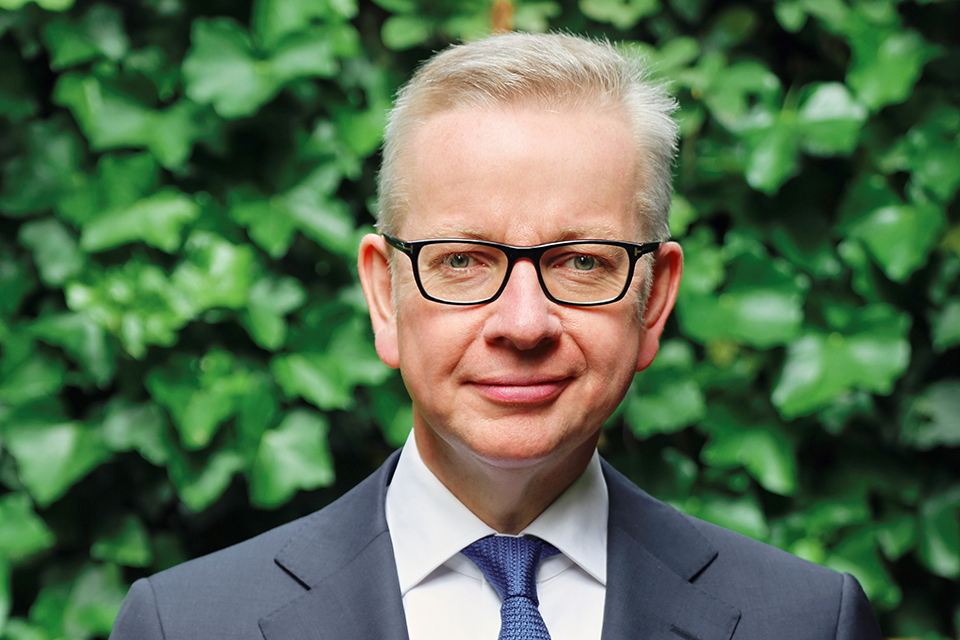Remarks at the German Embassy by the Chancellor of the Duchy of Lancaster: 3 October 2019
Remarks at the Germany Embassy by Chancellor of the Duchy of Lancaster Michael Gove.

Thank you, Peter – thank you for your welcome, and thank you also for inviting so many friends of Germany to your home here this evening.
They say that every cloud has a silver lining and sometimes silver linings have clouds as well.
When our current Prime Minister invited me to join his government, I was delighted and flattered but also a little bit sad.
Sad because in joining the government it meant that I was no longer able to fulfil the commitment that I’d entered into to visit Bayreuth this year, in order to enjoy the Festspiele.
And it meant that I was deprived of your company, Peter, as well as the wonderful music that I was so looking forward to.
And the links between our two countries – cultural, political and personal – are links which I cherish.
One of my first political experiences was attending a Young Koenigswinter Konferenz in Berlin and getting to know a rising generation then of German thinkers, business people, diplomats and journalists.
And since then I’ve had the opportunity to attend further Koenigswinter conferences to get to know people across the political and business spectrum in Germany.
And I’m always admiring – admiring of what modern Germany has achieved.
Because modern Germany stands as an example to us all of what democracy can achieve against odds that some once thought impossible.
If you look back at the history of modern Germany, you can see in Konrad Adenauer one of the towering statesmen of the last century.
You can see Ludwig Erhard, and the establishment of the social market economy – a model which combines free enterprise and social justice in a way that other countries have learnt so much from.
We’ve seen in the example of Willy Brandt an opportunity to try to bring together and to transcend divisions which some thought impossible to overcome.
And of course we saw in Helmut Kohl a chancellor who in a supreme act of statesmanship managed to bring the people of Germany together in a unity that we celebrate today.
And no-one should underestimate the scale and the measure of that achievement.
To take East Germany, which had been imprisoned in communism, and as a result its people having been denied freedom and free expression –
To take East Germany, to bind it with West Germany and to create from those two sundered parts a country which today is an example of democratic virtue and of civic spirit and of entrepreneurialism and solidarity, was an amazing historical achievement.
And it should continue to be celebrated.
But as the Bundeskanzler enlightened us today in Kiel, the work of German unity is a work that is always ongoing, as the work of unity for all politicians always is.
There are always challenges that pull us apart: political polarisation, economic divisions, and sometimes an increasingly raucous and strident political and media atmosphere.
There are temptations for people to pull apart rather than come together.
Well, the example of modern Germany reminds us how important it is to come together. And as the Ambassador also reminded us, it also shows that we can come together quickly when we recognise how important it is to set aside divisions.
Britain made its democratic decision three years ago to leave the European Union – and I know there will be many people in this room who will deeply regret that decision.
But also one of the things that I am grateful for, and I know that the British government is grateful for, is the way in which the German government and our friends in Europe respect that decision and have sought since then to ensure that that decision can be honoured in a way that makes sure that the links that have been forged on a personal and on a cultural and on an economic level can be preserved in the future.
And in the days ahead I hope we can secure our exit from the European Union in a way that ensures that the deep ties that bind both our countries can be enhanced and refurbished in the days to come.
Because Britain and Germany have so much in common.
Not just – I think Britain and Germany do have much in common - but my view is that both of us are robust and successful democracies, both of us are examples of how you can combine commitment to a free enterprise economy with a commitment to social justice.
And both of us have a critical role to play in making sure that the rules-based international order – those values that have come to be known as western values, but in truth are universal democratic values – are upheld and defended.
And that’s why I want to thank not just the German Ambassador but also the government of the Federal Republic of Germany for their friendship – and in particular to thank the Bundeskanzler for the leadership that she has shown and continues to show in demonstrating that modern Germany is an example to us all, and an example that we can celebrate.
And with that I just want to say to all our friends in Germany – thank you for your friendship, thank you for your solidarity, and thank you for your example.
Thank you.